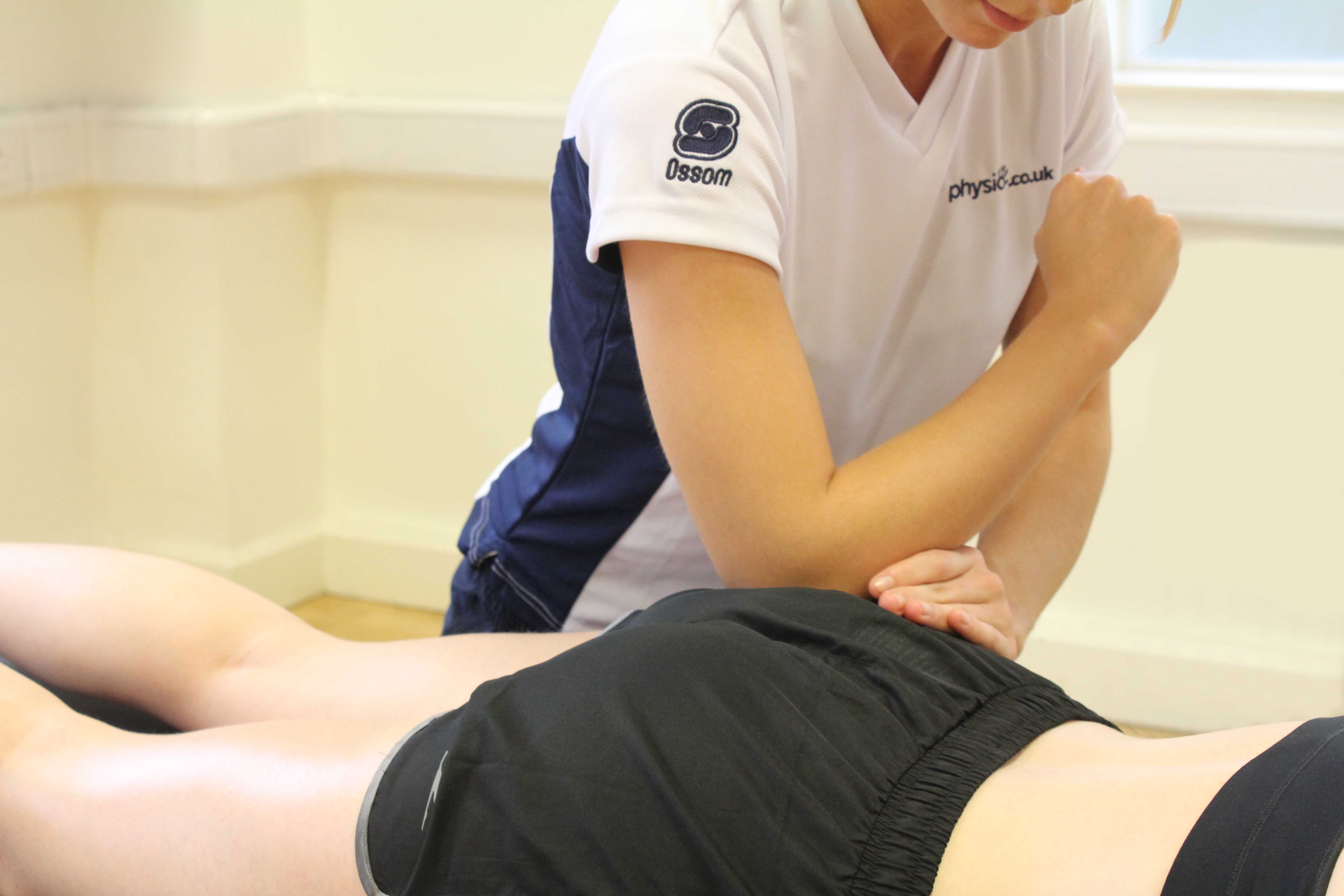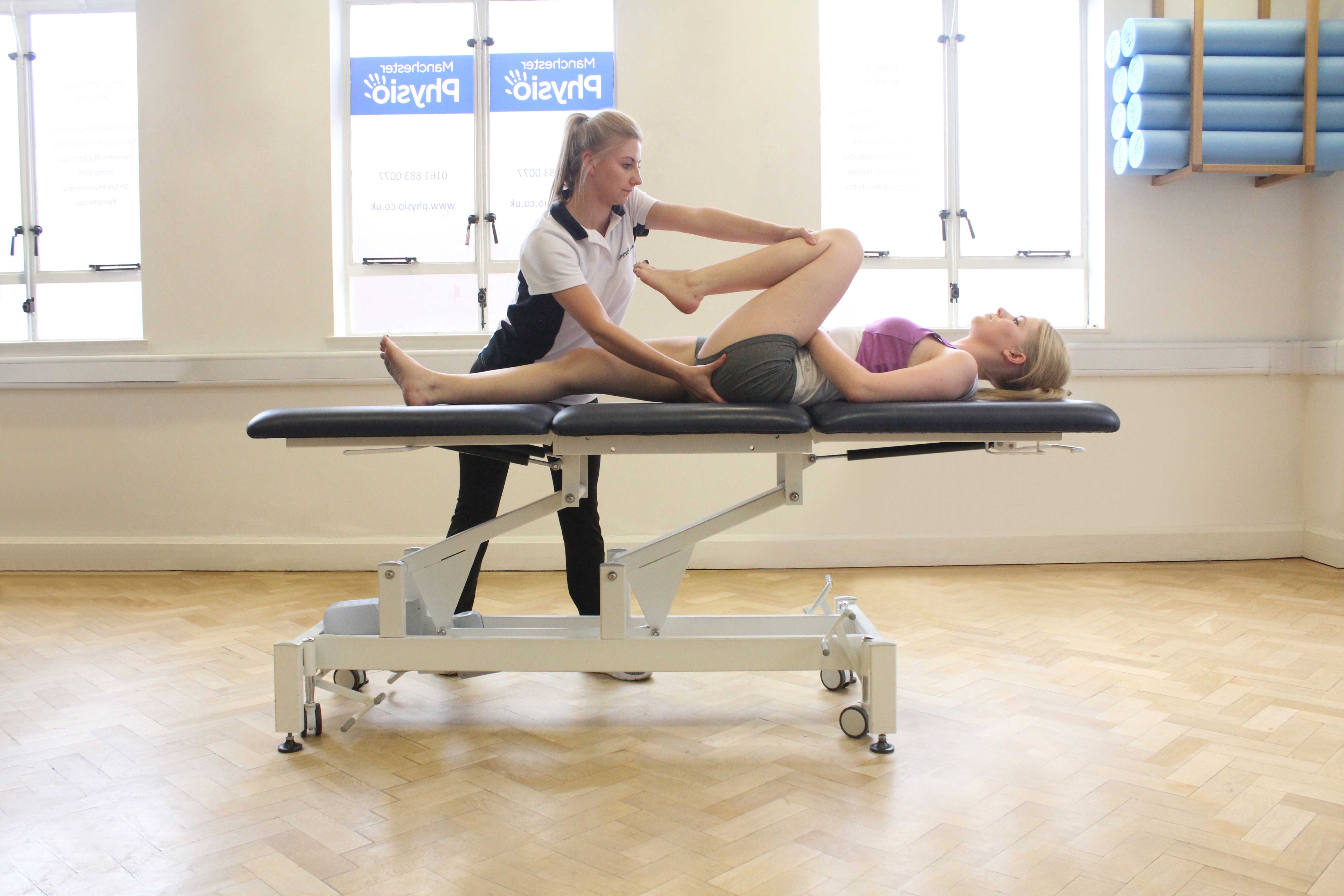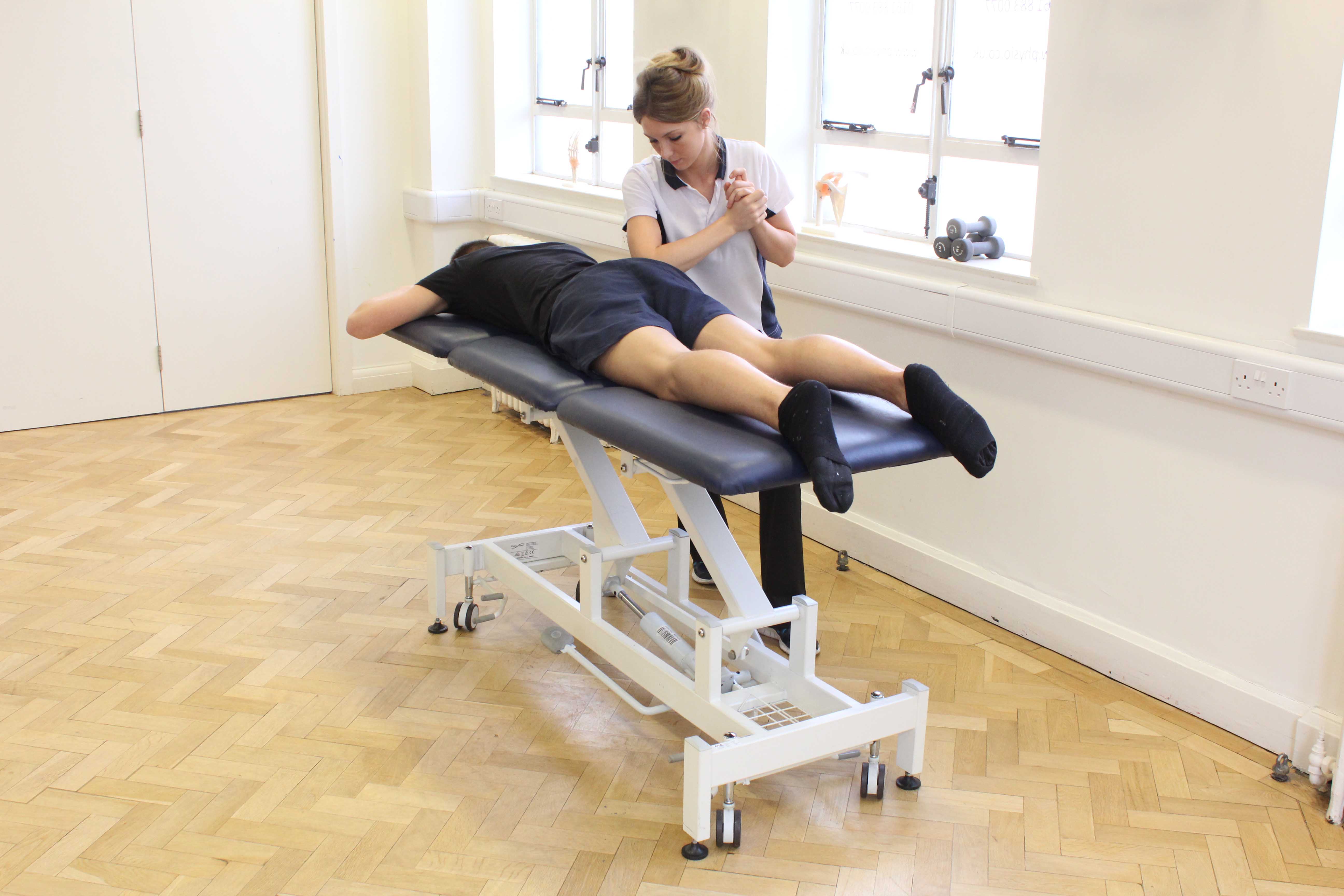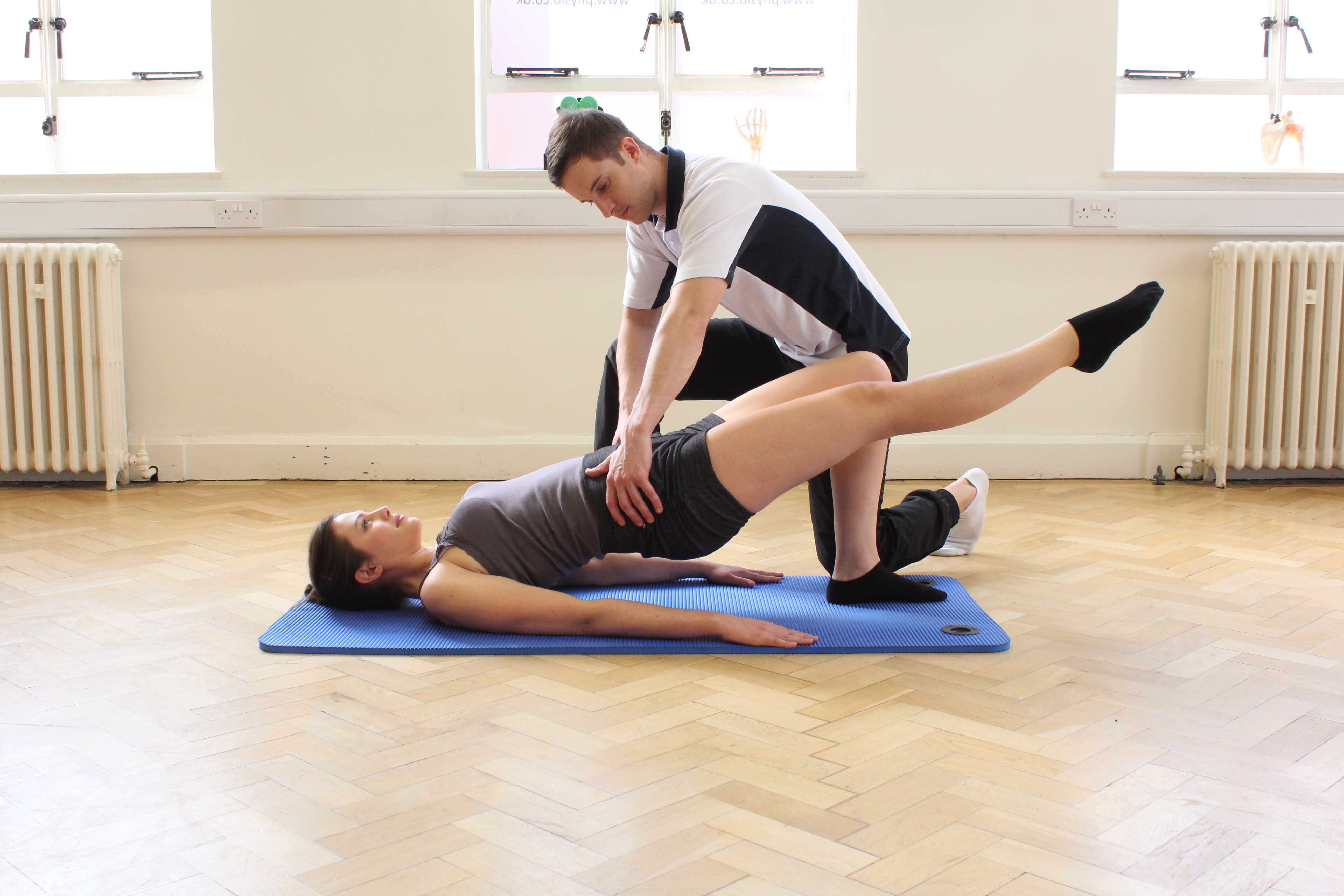What is a gluteal strain?
A gluteal strain is a tear in one of the gluteal muscles.
The gluteal muscles are the muscles that make up the buttocks. Each buttock is made up of three different gluteal muscles; gluteus maximums, gluteus medius and gluteus minimus. A gluteal strain is when there is a tear in one or more of these muscles.
 Above: Deep tissue massage of the gluteus maximus muscle by specialist therapist
Above: Deep tissue massage of the gluteus maximus muscle by specialist therapistHow does a gluteal strain happen?
The gluteal muscles are used to straighten the hip and to help stabilize movements of the hip. To do this they need to contract, which involves the muscle rapidly shortening. If there is too much force or repetitive force through the contraction, then the muscle can tear which is known as a strain. The chance of this happening is increased if the muscle is being stretched when the contraction occurs. Gluteal strains are uncommon but are more likely to occur during sport, especially in running and jumping games such as athletics or football.
What are the symptoms of a gluteal strain?
A sudden, sharp pain in the buttocks is usually felt when the strain occurs. Pain will be felt immediately after and may reduce over time. However pain is likely to be felt on activity that uses the gluteal muscles such as jogging, using stairs or jumping. Some pain may even be felt on walking. Some other symptoms that may be experienced are:
- Pain and stiffness after activity, especially in the morning after activity
- Swelling
- Tenderness
- Bruising
- Weakness
 Above: Deep tissue massage of the gluteus maximus muscle by specialist therapist
Above: Deep tissue massage of the gluteus maximus muscle by specialist therapistWhat should I do if I have a gluteal strain?
If you have or suspect you have a gluteal strain, you should rest the muscle. You should consult a physiotherapist as it is important to rehabilitate the muscle and to return to normal function. You can also ice the muscle using a bag of frozen peas or crushed ice wrapped in a damp cloth for 15–20 minutes over the muscle every 1–2 hours.
What shouldn’t I do if I have a gluteal strain?
If you have or suspect you have a gluteal strain, you should not ignore the problem and continue to exercise. This is likely to damage the muscle further so activities such as walking long distances or using stairs should be avoided.
 Above: Deep tissue massage of the gluteus maximus muscle by specialist therapist
Above: Deep tissue massage of the gluteus maximus muscle by specialist therapistPhysiotherapy treatment for a gluteal strain.
After the initial resting and use of ice, it is important to rehabilitate the damaged muscle. Physiotherapy is vital to achieve this. If the muscle damage is very severe it may be necessary for crutches to be used for a short period of time to reduce strain on the muscle and accelerate the healing process. Early rehabilitation of the muscle will involve performing movements that involve the muscle, before moving on to some resisted movements. Later rehabilitation will involve starting activities that use the muscle such as jogging and climbing stairs, before progressing on to running and jumping. Specific treatment that can be used alongside the rehabilitation may include:
- Electrotherapy
- Massage
- Stretching exercises
- Mobilisation exercises
- Education on activity and technique
Could there be any long-term effects from a gluteal strain?
If it is properly treated and rehabilitated then there should be no long term effects from a gluteal strain. However if it is not properly rehabilitated then it is likely to re-occur and the problem can become chronic. This results in longer healing times causing pain to last for longer and the frequency of re-occurrence to increase.
 Above: Strengthening exercises for the gluteus muscles supervised by a therapist
Above: Strengthening exercises for the gluteus muscles supervised by a therapistPlease call Physio.co.uk on 0330 088 7800 to arrange an appointment or book online today.

 0330 088 7800
0330 088 7800

































